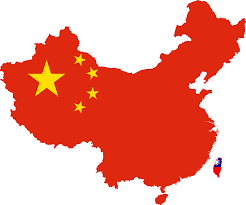China’s stock market experienced modest gains on Monday, driven primarily by technology shares. This followed Beijing’s announcement of new initiatives aimed at supporting innovative tech companies. Additionally, the country cut its benchmark lending rates, contributing to the positive movement.
The CSI300 Index, which tracks blue-chip stocks, edged up by 0.3%, while the Shanghai Composite Index saw a smaller rise of 0.2%. However, Hong Kong’s Hang Seng index dropped by 1.6%. In the mainland market, information technology shares led the way, climbing as much as 6.5%. The STAR50 index, focused on tech stocks, showed significant strength, surging by 8.7%.
Among the notable performers was semiconductor giant SMIC, which closed the day with an 8.1% gain. The Beijing Stock Exchange 50 Index also made a significant move, jumping 16% to reach a record high. This increase followed an announcement from the exchange on Sunday, which outlined plans to provide training and financial access to small- and medium-sized tech companies looking to list.
Chinese President Xi Jinping’s comments in support of science and technology in economic development also played a role in boosting market sentiment. On the policy front, China lowered its one- and five-year loan prime rates by 25 basis points each during the monthly fixing, a reduction that had been largely expected by the market, although many had anticipated a 20 basis point cut.
However, the performance of technology and electric vehicle (EV) companies in Hong Kong weighed heavily on the Hang Seng index. EV manufacturer NIO, for example, saw its stock fall by 6.1%.
In a broader move, over 20 Chinese listed companies have revealed plans to make use of a special central bank lending scheme to fund share purchases. This comes just days after the People’s Bank of China (PBOC) initiated a $42 billion funding programme aimed at supporting the market.
Despite the gains on Monday, Chinese stocks are down around 11% from their recent peak on October 8th. The market has experienced a volatile period, with investor caution erasing some of the gains that had been made in late September following Beijing’s stimulus measures.
UBS analysts noted that both China A-shares and Hong Kong stocks have entered a phase of volatility. Although monetary policy easing has occurred, investors remain cautious, particularly ahead of the upcoming U.S. elections and the mid-November National People’s Congress session. On a brighter note, UBS recently revised its GDP growth forecasts for China, upgrading expectations for 2024 and 2025 to 4.8% and 4.5%, respectively. This adjustment came after better-than-expected third-quarter GDP results and the announcement of recent policy measures.
Fidelity China Special Situations PLC (LON:FCSS), the UK’s largest China Investment Trust, capitalises on Fidelity’s extensive, locally-based analyst team to find attractive opportunities in a market too big to ignore.

